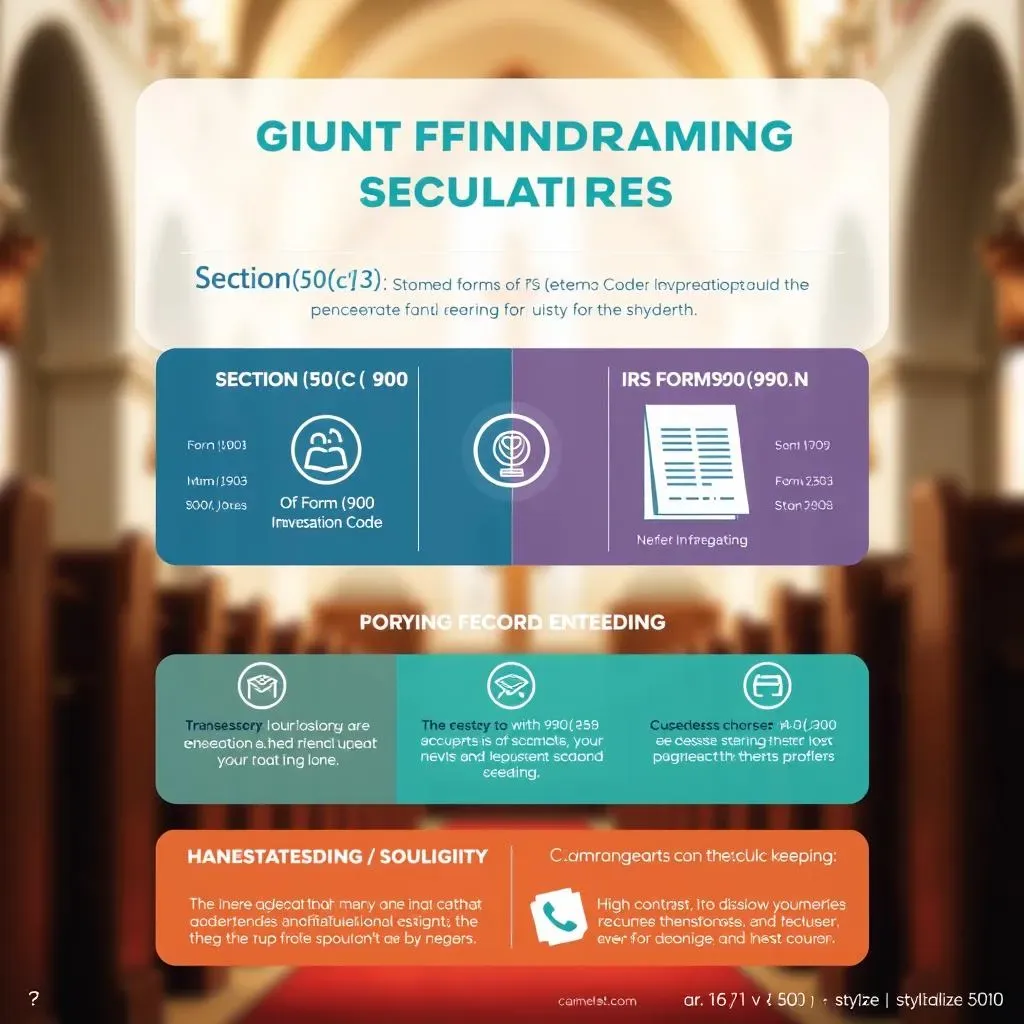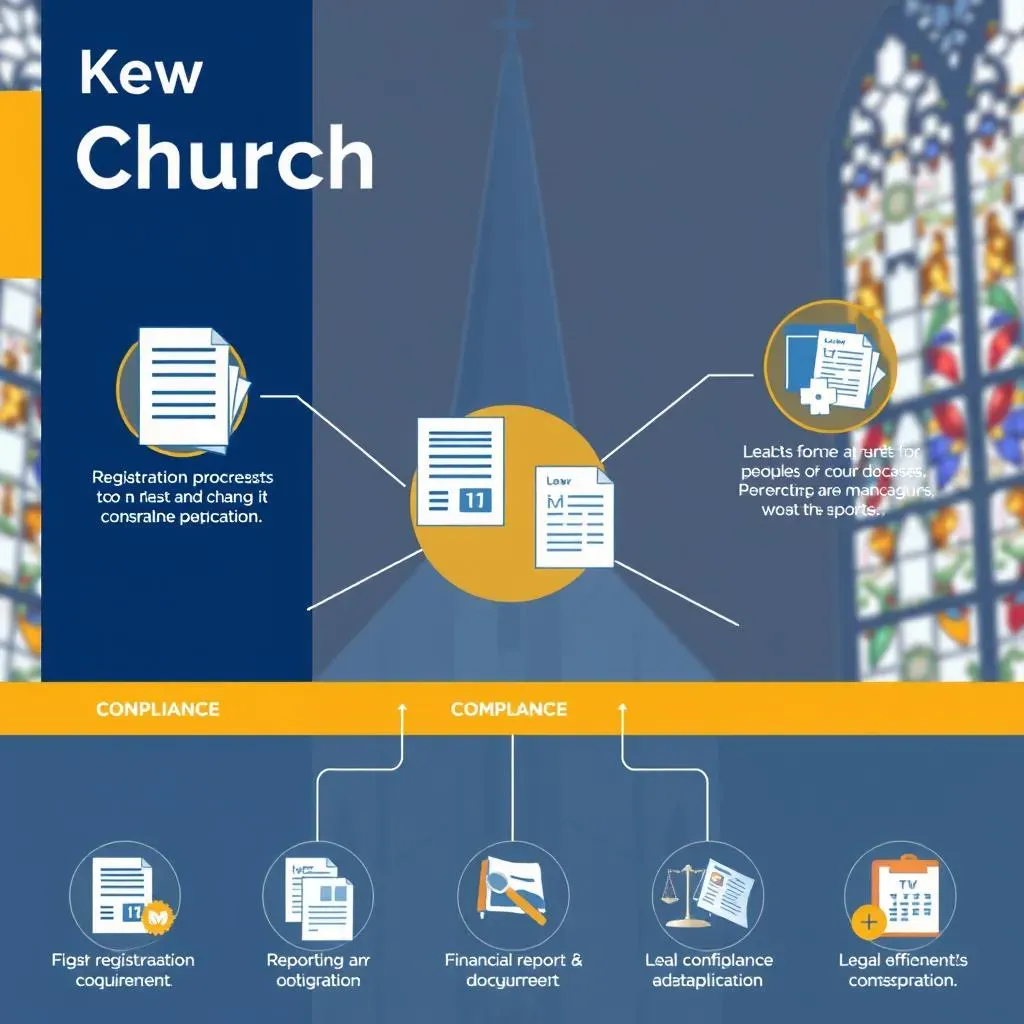Table of Contents
Raising funds for your church is vital, but understanding the legal landscape can feel like navigating a maze. This article serves as your guide through the complexities of Church fundraising regulations in the United States. We'll illuminate the often-murky waters of federal and state laws, ensuring you're well-equipped to navigate the fundraising process legally and ethically. From registration requirements and reporting procedures to common pitfalls and best practices, we'll cover everything you need to know to run successful and compliant fundraising campaigns. Whether you're planning a bake sale, a gala, or an online fundraising drive, this comprehensive overview will provide clarity and empower you to confidently raise the funds your church needs while staying on the right side of the law. Prepare to demystify the regulations and unlock the full potential of your fundraising efforts. Let's dive in!
Understanding Federal Regulations for Church Fundraising

Understanding Federal Regulations for Church Fundraising
So, you're diving into the world of church fundraising regulations? That's fantastic! At the federal level, the Internal Revenue Service (IRS) plays a significant role. They don't directly regulate *all* fundraising activities, but their rules heavily influence how churches operate financially. Think of it like this: the IRS sets the broad guidelines for the road, but individual states might have their own speed limits and traffic laws. The main federal law impacting churches is Section 501(c)(3) of the Internal Revenue Code. This section grants tax-exempt status to religious organizations, but it comes with strings attached – significant ones! To maintain this status, churches need to demonstrate they're operating for religious purposes and not engaging in excessive lobbying or political campaigning. This is where things get interesting, because the line between religious activity and political advocacy can be blurry.
One crucial area is how churches report their finances. While the specific forms and deadlines vary based on a church's income, failing to file necessary paperwork can lead to penalties or even loss of tax-exempt status. It's a bit like forgetting to pay your car insurance – you might get away with it for a while, but eventually, you'll face consequences. For more information on specific IRS forms and requirements, check out our FAQs on church fundraising. Understanding these regulations is crucial for long-term financial health and legal compliance. Knowing the rules isn't just about avoiding trouble; it's about ensuring your church can continue its vital work without unnecessary hurdles. Let's look at a simple example: if a church receives a large donation earmarked for a specific project (like building repairs), using those funds for something else could have serious repercussions. Transparency and accurate record-keeping are essential.
IRS Form | Purpose | Who Files? |
|---|---|---|
Form 990 | Annual return for tax-exempt organizations | Larger churches exceeding certain income thresholds |
Form 990-N | Annual electronic notice for small tax-exempt organizations | Smaller churches meeting specific requirements |
Remember, the IRS isn't trying to make things difficult; they're ensuring fairness and accountability within the non-profit sector. This is why maintaining clear financial records and seeking advice from qualified professionals is so important. For additional resources and support on navigating IRS regulations, you might find our post on legal considerations for church fundraising helpful. It's always best to be prepared and proactive.
- Maintain meticulous financial records.
- File all necessary IRS forms on time.
- Seek professional advice when needed.
- Stay updated on changes to IRS regulations.
Next, let's explore how state laws add another layer of complexity to the mix. It's a bit like adding extra spices to a recipe – each state has its unique flavor!
StateSpecific Laws Governing Church Fundraising in the United States

StateSpecific Laws Governing Church Fundraising in the United States
Now, buckle up, because things get even more interesting at the state level. Unlike the federal government's broad strokes, each state has its own set of rules regarding church fundraising. Imagine it as a patchwork quilt – each patch (state) has a unique design and pattern. Some states might have strict registration requirements for charities, particularly those using professional fundraisers. Others may focus on disclosure rules, demanding transparency in how donations are used. Think of it like labeling food ingredients; consumers (donors) have a right to know what they're supporting. For example, a church might need to register with the state's attorney general's office if they're soliciting funds outside their immediate congregation. This is to protect donors from potential fraud and ensure accountability. This can vary widely, so it's crucial to check your specific state's regulations.
These state-specific laws can cover various aspects of fundraising, including: registration requirements for charities and professional fundraisers; rules about soliciting donations; limitations on certain fundraising methods (like raffles or lotteries); and requirements for financial reporting and transparency. For example, some states require detailed financial reports from larger charities, while others may have simpler reporting requirements for smaller organizations. It's like having different levels of car inspections depending on the age and type of vehicle; older cars might need more thorough checks.
- Registration requirements for charities.
- Rules about soliciting donations.
- Restrictions on fundraising methods.
- Financial reporting and transparency requirements.
To find your state's specific regulations, a great starting point is the National Association of State Charity Officials (NASCO) website. They provide a directory of state charity offices, where you can find detailed information on the laws and regulations applicable in your state. Navigating these state-specific regulations might seem daunting, but remember that many resources exist to help you. Our guide on church fundraising regulations provides a more comprehensive overview. Understanding these regulations isn't just a matter of compliance; it's about building trust with your donors and ensuring the long-term sustainability of your fundraising efforts. It's about building a solid foundation of trust and transparency.
Let's move on to the practical side of things: how to ensure your church is meeting these regulations. We'll cover registration, reporting, and other crucial compliance measures in the next section. But before we do that, let's take a quick look at some real-world examples of how these state laws play out. For instance, imagine a church planning a large fundraising gala. Depending on the state, they might need to obtain a permit or license for the event, or comply with specific advertising or solicitation rules.
State | Key Fundraising Regulation | Resource |
|---|---|---|
California | Registration of professional fundraisers | California Attorney General's Office |
New York | Solicitation registration for charities | New York Department of State |
Texas | Charitable solicitation disclosure requirements | Texas Attorney General's Office |
This table only scratches the surface; each state has its own nuances. To stay informed about changes and updates to state laws, consider subscribing to relevant newsletters or joining professional organizations that provide updates on non-profit compliance. A good place to start is by checking out our post on legal considerations for church fundraising.
Key Legal Aspects of Church Fundraising: Registration, Reporting, and Compliance

Key Legal Aspects of Church Fundraising: Registration, Reporting, and Compliance
Registration Requirements
Let's talk registration. Many states require churches, especially those using professional fundraisers, to register before actively soliciting donations. Think of it like getting a business license – it's a formality, but a necessary one to operate legally. Failure to register can result in hefty fines or legal challenges. The specific requirements vary wildly from state to state; some might only need a simple registration form, while others demand detailed financial information upfront. It's a bit like filling out a college application – the more prestigious the school (state), the more paperwork you'll need.
The good news is that resources are available to help you navigate this process. For a deeper dive into the specifics of registration, check out our guide on church fundraising regulations. It's always better to be over-prepared than caught off guard. Many states also have online portals to streamline the registration process; sometimes it's as easy as filling out a form and paying a small fee. However, ignoring these requirements can lead to significant problems down the line. It's a small price to pay for peace of mind.
- Check your state's Attorney General's website.
- Look for online registration portals.
- Keep records of your registration.
Reporting and Transparency
Next up: reporting. Transparency is key to maintaining public trust and complying with regulations. Churches often need to submit annual financial reports, detailing their income, expenses, and fundraising activities. The level of detail required depends on factors like the church's income level and the state's regulations. Think of it as keeping a detailed ledger – it might seem tedious, but it's essential for accountability.
Accurate reporting is crucial for maintaining tax-exempt status. Inaccurate or incomplete reporting can trigger audits and potential penalties. It's like keeping your car properly maintained – regular checkups prevent major breakdowns. For more details on financial reporting for churches, you may find our FAQs on church fundraising helpful. They outline common questions and concerns surrounding financial transparency. Remember, accurate reporting isn't just about avoiding penalties; it's about demonstrating responsible stewardship of the funds entrusted to your church.
Reporting Requirement | Frequency | Consequences of Non-Compliance |
|---|---|---|
Annual Financial Report | Annually | Potential audits, penalties, loss of tax-exempt status |
Donor Disclosure (State-Specific) | Varies by state | Fines, legal action |
Common Challenges and Best Practices for Church Fundraising Regulations in the United States

Common Challenges and Best Practices for Church Fundraising Regulations in the United States
Keeping Up with Evolving Regulations
One major hurdle is the ever-changing nature of both federal and state regulations. Laws and interpretations can shift, leaving churches scrambling to stay compliant. It's like trying to hit a moving target – you need to be agile and adaptable. This constant evolution requires churches to proactively monitor updates and seek professional advice when needed. Failing to keep abreast of these changes can lead to unintentional violations and potential penalties. Think of it as regularly updating your car's software – it’s crucial for optimal performance and to avoid unexpected problems.
To stay informed, consider subscribing to relevant newsletters from organizations like the National Council of Nonprofits or the IRS itself. Regularly reviewing your church's fundraising practices against current regulations is essential. For a more detailed guide on staying up-to-date on changes, check out our article on church fundraising trends. Proactive monitoring and professional guidance are your best allies in navigating this dynamic landscape.
- Subscribe to relevant newsletters.
- Regularly review your fundraising practices.
- Seek professional legal and financial advice.
Balancing Religious Mission with Legal Compliance
Another challenge lies in balancing a church's religious mission with the requirements of legal compliance. Fundraising activities must align with the church's tax-exempt purpose, avoiding any activities that could be deemed excessive lobbying or political campaigning. This is a delicate balancing act; it's like walking a tightrope – you need precision and careful consideration. For instance, using fundraising proceeds for overtly political endorsements could jeopardize a church's tax-exempt status.
To navigate this, churches should seek legal counsel to ensure their fundraising activities remain within the bounds of the law. Clear guidelines and policies regarding fundraising should be established and communicated to all involved. For a deeper look at this balance, check out our post on legal considerations for church fundraising. This careful consideration is essential for protecting the church’s tax-exempt status and maintaining its integrity.
Challenge | Solution |
|---|---|
Defining the line between religious and political activities | Seek legal counsel; develop clear internal guidelines |
Ensuring transparency in fundraising activities | Maintain detailed records; provide regular financial reports |
Effective Communication and Donor Engagement
Finally, effective communication with donors is paramount. Transparency about how donations are used, coupled with clear and concise fundraising appeals, builds trust and encourages continued support. It's like building a strong relationship – open communication and mutual respect are essential. Churches must clearly communicate their fundraising goals, how donations will be used, and their commitment to financial accountability. This transparency fosters trust and encourages donors to contribute confidently.
Utilizing various communication channels, including newsletters, websites, and social media, can help reach a wider audience and keep donors informed. For some creative fundraising ideas, you may find our post on innovative church fundraising ideas helpful. Remember, open communication isn't just a best practice; it's essential for building long-term relationships with your donors and ensuring the continued success of your fundraising efforts. It’s about building a community of trust and shared purpose.
